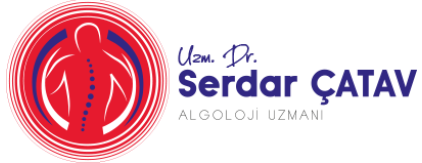A muscle spasm is a sudden, involuntary movement in one or more muscles. People also call it charley horse or muscle cramp or twitch.
These movements can occur in any muscle of the body and are very common. Muscle spasms often occur as a result of stress, exercise, and dehydration. They are not usually a cause for concern.
*Reasons
Muscle spasms are very common. They can occur anywhere on the body, but they tend to affect:
•Foot
• Hands
• Thigh
abdomen
• Intercostal muscles around the rib cage
Muscle pain, fatigue, and overuse are the most common causes of muscle spasms. Other causes include stress or anxiety, which can lead to facial muscle twitches. Compressed nerves can cause spasms in the back.
Athletes who do not warm up before exercising or exercising in very hot conditions may also experience muscle spasms. The Charley horse, for example, is a term people often use to describe spasms in the calf muscles of runners. Drinking insufficient water before exercise can also cause muscle spasms.
*Some people are more vulnerable to muscle spasms than others. Those most at risk:
• Older adults
• Athletes
• Overweight or obese patients
• Pregnant women
People with certain health conditions, such as nervous disorders or thyroid-related problems, also tend to experience muscle spasms with an above-average frequency.
Muscle spasms are usually nothing to worry about, but in some cases, they can be a sign of an underlying neurological health condition. Neurological health conditions affect the brain, which is responsible for the movement of muscles.
symptoms
Not all muscle spasms are painful, but some can cause pain. The muscle may feel as if it is bouncing or moving on its own, typically lasting only a few seconds. Some people may even experience muscle twitching.
Sometimes it may feel as if the entire muscle is cramped and unable to move. This effect is most common on the legs and can be quite painful. The muscle may be difficult to touch. While the cramping sensation tends to pass within a few minutes, the muscle may continue to ache for a while afterwards.
If a muscle spasm is part of a neurological health condition, the person will often experience other symptoms. These may include:
• Back, neck or headache
• Weakness in the muscles
• Skin numbness
• Tingling sensation
• a tremor
• Poor Coordination
• Slow movements
• double vision
• Sleep problems
*Treatment
Muscle spasms usually resolve spontaneously. They may take a few seconds or even minutes to stop, but they usually do not need treatment. Drinking plenty of water can help relieve muscle cramps due to dehydration.
If someone has a painful cramp, they can try several methods to relieve symptoms.
• Stopping any activity that causes cramps
• Gently massage the cramp muscle
• Gentle stretching of the cramped muscle
• Applying heat to loosen tight muscles
• Applying an ice pack to soothe sore muscles
In cases where there is an underlying neurological condition causing muscle spasms, doctors may recommend an antispasmodic medication.
*Prevention
Drinking plenty of water and stretching the muscles before any exercise or repetitive activity can help prevent muscle spasms.
Some people experience muscle cramps in the legs during the night. Stretching the limbs before bed can help prevent this from happening.
*When to see a doctor
Muscle spasms, twitches, and cramps are not usually a cause for concern. It is completely normal, especially in athletes and other people who exercise regularly.
But in some cases, it can indicate an underlying health condition, such as multiple sclerosis, thyroid disease, or liver cirrhosis. It can also be the result of problems with:
•Nutrition
• Roaming
• Metabolism
• Nerves
•Hormones




